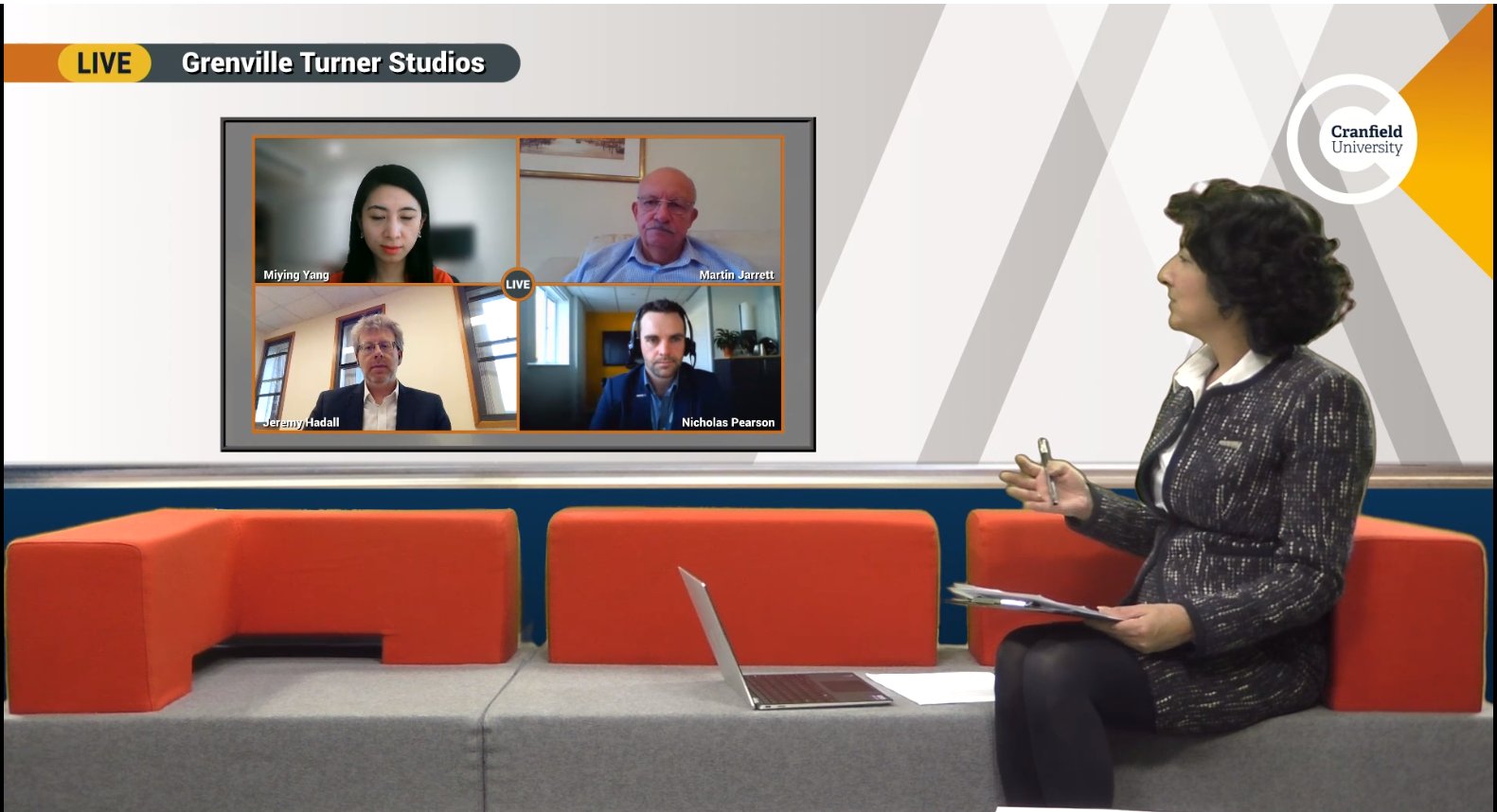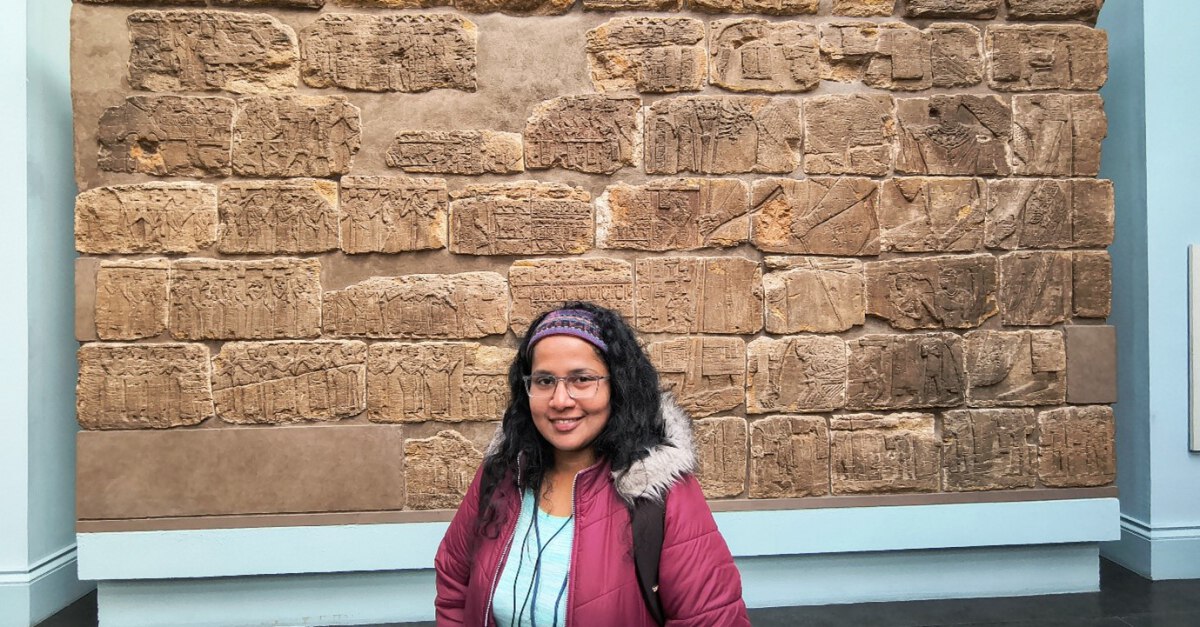Manufacturing and materials week 2021 overview
03/12/2021

So Cranfield Manufacturing and materials week 2021 is over and what a full week it was! We started off with a panel of speakers chaired by Rosa Wilkinson (Policy Director of the High Value Manufacturing Catapult) and including Dr Anne Velenturf (Senior Research Fellow in Circular Economy, University of Leeds), Halil Bedevi (UK Head of Aerospace, Defence, Rail & Advanced Manufacturing, Corporate & Commercial Banking, Santander UK), Lee Mather (Team Lead Digital Manufacturing, Rolls Royce) and our own John Ahmet Erkoyuncu (Professor of Digital Engineering), talking about Skills and Careers and delivering a sustainable and digital manufacturing future. The opportunities for AI and Machine Learning are huge as manufacturing transitions fully to Industry4 and the challenges of sustainability and achieving net zero targets. This in itself will also enable a more diverse workforce as the skills required are not the tradition ones perceived by society of what manufacturing is. Katrina Armstrong and Steven Crabb then hosted an employability skills workshop.
A panel of students gave some insightful reflections to Alison Whaley (Director of Student Experience) on what it’s like to study either on a taught master’s course or PhD in Manufacturing and materials at Cranfield.
This teed up the session on day 2 – Building the Strongest Team: ED&I in UK Manufacturing and Materials. I chaired a fantastic panel of speakers who have all faced personal challenges in their own professional lives and also developed diverse teams. Professor Karen Holford CBE FREng (Chief Executive and Vice-Chancellor, Cranfield University) and Professor Sue Black OBE Black (Professor of Computer Science and Technology Evangelist, Department of Computer Science at Durham University) discussed coming into STEM subjects from disadvantaged backgrounds, Halil Bedevi, UK Head of Aerospace, Defence, Rail & Advanced Manufacturing, Corporate & Commercial Banking, Santander UK) proposed that “Equality and Diversity cannot be created at the last minute. It needs to start from the beginning and ED&I is not just for the ‘EDI dept’ – it needs to be embedded in the organisations in which we work!”. And Jude Allan (Chair, IOM3 Packaging Group) emphasised the requirement for neuro diversity as a way for solving problems but also challenging the traditional way we have done things in manufacturing in the past. There was full agreement that diversity is almost the only way of solving the current challenge of global warming and climate change.
The Cranfield Manufacturing Alumni in the afternoon of day 2 saw us present Yewande Akinola MBE FIET HonFREng the Excellence in Manufacturing award. Yewande talked about how important Cranfield was in developing her confidence to think more creatively and become an innovator. Dr Pam Murrell FICME, CEO of the Cast Metals Federation was our the Distinguished Alumna in Manufacturing. Pam presented her journey in the industry, highlighting the challenges in skills and diversity for SMEs in manufacturing in the next few years. However, she also made it very clear that the casting industry is an integral part of the Circular Economy and a way of helping society reduce the amount of primary material that is produced.
Day three saw us embark on the 12th National Manufacturing Debate chaired for the third time by Rosa Wilkinson. The salient lesson for me that came through very strongly was that much of the technology that we need to achieve net zero already exist and what we need to do is change mindsets, business models and be more collaborative! Rosa finished the debate by asking the panellists what their Christmas wish would be. James Close (Head of climate change, NatWest Group). For Professor Martin Jarret (Global Technical Director of the Automotive Structures & Industry business unit, Constellium) it was a plea to not export scrap – especially metals but to build businesses in the UK to use the scrap! A million tonnes of aluminium and 9 million tonnes of steel! Miying Yang’s (Reader in Sustainability, Cranfield University) request was to have more international collaboration in solving the sustainable and circular economy problems in materials and manufacturing. She pointed out as an example that we know how large the manufacturing sector is in China and what a massive CO2 footprint that creates but they need help to reduce it. Jeremy Hadall (Robotics Development Lead at the Satellite Applications Catapult & Royal Academy of Engineering Visiting Professor at Cranfield) asked for people to look horizontally and reach out for help from other sectors to take the first steps in sustainable manufacturing (which sound suspicious what we are trying to do in the UKRI Transforming the Foundation Industries Research and Innovation Hub (TransFIRe) led at Cranfield by myself. Finally, Nicholas Pearson CEng MIMechE (Technology Manager – GKN Aerospace) clearly reprimanded industry to stop greenwashing and aim to go carbon negative.
And so to day 4 Manufacturing 2075: To boldly go! Manufacturing in space. Hosted by our own Professor Krzysztof Koziol the day was full of Cranfield researchers as well as those from the European Space Agency, Space Forge, the Satellite Applications Catapult and SaxaVord UK Spaceport and some young people from a Y7 class at a Cambridge school. Presentations were given by Nils Eliasson, Dr CarloSaveriolorio, Dr Advenit Makaya and Tal Horton Horsman. Three workshops the followed: Space 2075 – with Ben Jarvis and Professor Stephen Hobbs, Manufacturing in space opportunities for business – with Adam Heriba, Dr Roger Kings, Professor Stewart Williams, Dr Wojciech Suder and Manufacturing in space for young people with Laura González Llamazares, Zoe Ashford and Eva Peláez-Álvarez. Some of my takeaways for the presentations and the workshops were:
- the space industry has moved from where 90% of satellites used to be launched by governments to as completely reversed picture. If the industry takes the same path as aviation it will move from homemade billionaire’s space craft to being available to everyone as the costs come down.
The big topic and opportunities are:
- Opportunities for making materials that are not possible to make on earth
- How do we get things into space?
- Should we manufacture in space rather than Earth?
- The challenge of Space debris
The year 7 class message was to use space to help with sustainability on Earth, a fascinating perspective. “Let’s use space to help understand how to reuse and recycle – learn from space to bring back to earth and protect our beautiful planet and not have to find a planet B.”
Lastly, I liked that Dr Carlo Saverio lorio pointed out that the current interest in sustainability had been radically accelerated by the so-called “overview effect”, that 1st image of the delicate and small blue marble image of earth sent back by astronauts in the 1960’s. The Earth’s first “1st mega selfie”.
So what about next year?
Let me reflect on this year 2021. This has been a year where Manufacturing and Materials have come to the fore in the mind of society not only because of the global pandemic and the need to create ventilators and manufacture vaccines but also COP26 and the need to reduce the amount “stuff” humans create and resources we use. It’s clear that manufacturing matters to society for its health and prosperity.
For Cranfield Manufacturing and materials during the next twelve months we will continue our journey to create Smart Clean and Green manufacturing in the UK and Internationally. This will involve the development techniques for digital dematerialisation and resource efficiency across all sectors. We will publish dates and topics for next year’s Manufacturing and Materials Week shortly.
I would like to thank our sponsors of the Cranfield Manufacturing week: the High Value Manufacturing Catapult (HVM), the Manufacturing Technologies Association (MTA) and the Transforming the Foundation Industries Research and Innovation Hub (TransFIRe).
All the sessions from Cranfield Manufacturing and materials week and pre-recorded interviews from industry experts and academics in manufacturing and materials have been recorded and can be accessed by following the link below and registering.
Categories & Tags:
Leave a comment on this post:
You might also like…
From Sri Lanka to Cranfield: How a Commonwealth Scholarship transformed my environmental engineering journey
Hi, I’m Kavithanjali Uthayashangar and I’m here to tell you about my journey into environmental engineering. It began with a simple but powerful motivation: a desire to understand how engineering can ...
Inside the Air Transport Management MSc: Classes, assignments, and group project work
What’s it really like to study Air Transport Management at Cranfield? Adit walks us through a typical day, assignment expectations, and the excitement of hands-on group projects. This is the second of three blog ...
Using Factiva to research a company
If you’re tasked with researching a company, your first port of call might be to search Fame or EBSCO Business Source Complete. Your immediate reaction might not be to look at Factiva. However, for larger ...
How do I write a secondary reference … in the NLM style?
Secondary referencing is used when you’re reading a work which includes a quotation from another author, and you – the researcher – can’t obtain the original source. We always advise, where possible, to try to ...
Reaching new heights: How a Global Excellence Scholarship fuelled my aerospace dreams
Leaving my home in India to pursue an MSc in Aerospace Dynamics at Cranfield University was a leap of faith. Hi, I’m Oliza Kachroo and as an international student, the transition ...
How do I reference…when delivering a presentation?
Just as you cite and reference sources in written work, you should also acknowledge the sources you use or quote in oral presentations. Citing your sources in presentations provides your audience with information about the ...






